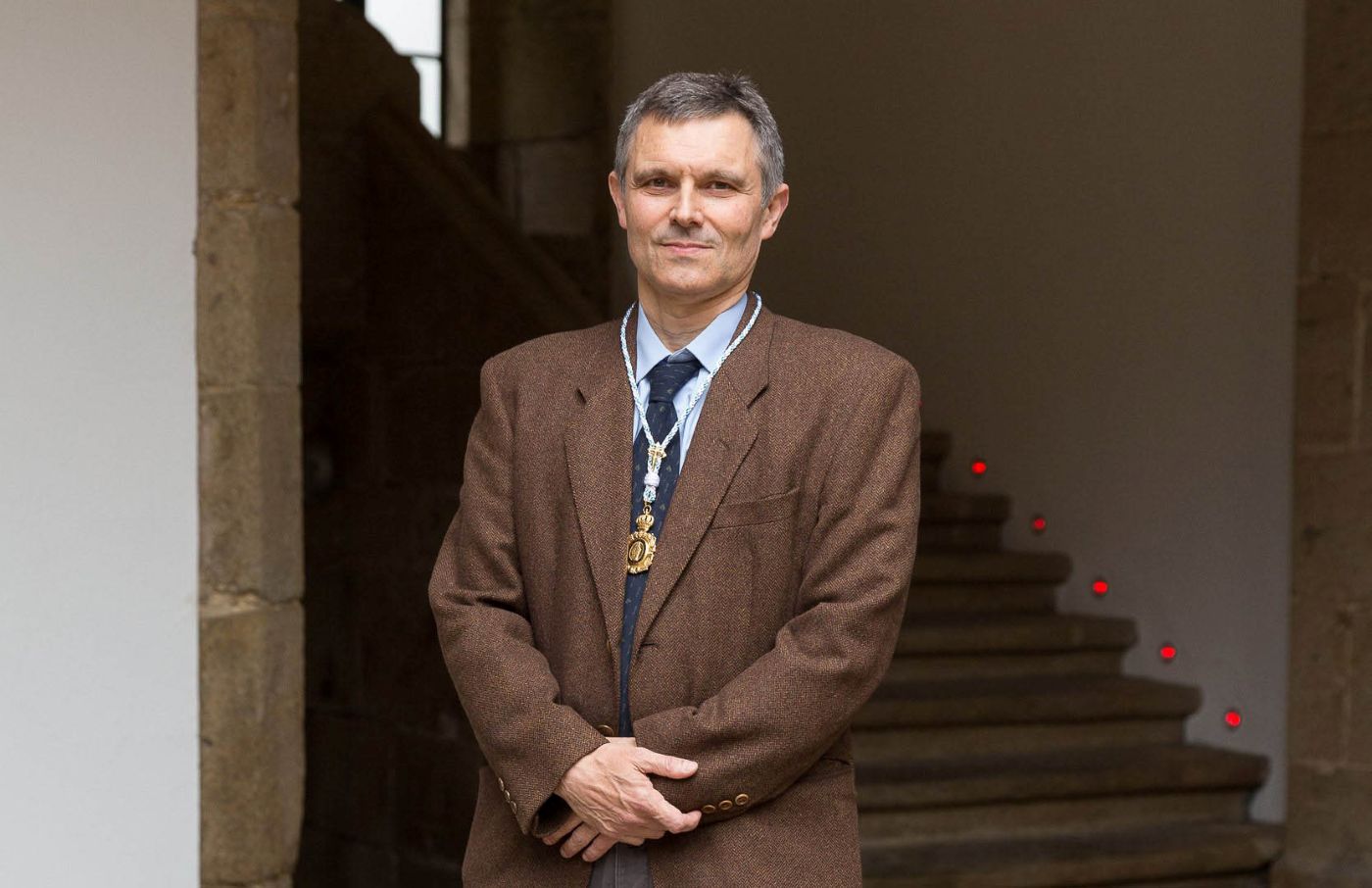The professor of Electronic Technology at the University of Vigo, Jesús Doval Gandoy (Lugo, 1965), was admitted this Thursday as a permanent academic of the Technical Sciences section of the Royal Galician Academy of Sciences. The ceremony took place at the Pazo de San Roque, in Compostela, where the researcher from the Research Center for Technologies, Energy and Industrial Processes, Cintecx, gave a speech in which he claimed the potential of power electronics in order to achieve more efficient and environmentally friendly transport and industry.
The president of the RAGC, Juan Lema, was in charge of opening the event and welcoming the new academic, of whom he highlighted that “he is a person with a very outstanding research career. With him, a new branch of knowledge that is very necessary today, such as power electronics, is incorporated into the Academy, a facet of essential basic and applied research with a very bright future”.
The usefulness of power electronics in the conversion of electrical energy
In recent years, Jesús Doval’s activity has been related to education, research, technology transfer and the dissemination of knowledge about technologies linked to electrical energy, electrical and electronic power systems and industrial electronics. In his opening speech, entitled Conversion into electrical energy and power electronics, he presented the function and enormous possibilities of this science. “Today, power electronics is present in a large number of applications in which electrical energy is processed, both in those of a few milliwatts, such as the power supply of a medical implant, to applications of hundreds or thousands of megawatts, such as in the case of the transport of electrical energy with high-voltage direct current,” he noted.
The professor explained that a power electronic converter integrates multiple electronic devices, sensors, microprocessors, refrigeration units, coils, capacitors, etc. And he indicated that its operation is supported by the bases of multiple disciplines of chemistry, physics and mathematics.
“Power electronics is a fundamental technology in the management of energy produced by alternative sources. It facilitates and makes the integration of these energy sources into the electrical distribution system in transport easier and more flexible. Additionally, it offers solutions for the storage of electrical energy, which, combined and managed appropriately, allows the electrical system to be less dominated by the intermittent nature of renewable energy sources” -he emphasized-.
Great impact on mobility and transport applications
In his speech, the young academic highlighted that power electronics is having a great impact in recent years on mobility and transport applications. Along these lines, he pointed out that “it is a core part of the traction and propulsion drives used in transport and electric mobility. It is present in the propulsion systems of electric and hybrid cars, in rail transport or in electrically propelled ships. Likewise, fast car battery charging stations consist of electronic power converters”. He highlighted that an alternative of great interest at present is the use of electronic power converters to supply electrical energy to ships while they are in port, which prevents internal combustion engines from operating during docking, thus contributing to reducing emissions of toxic gases such as sulfur oxides and nitrogen oxides.
Doval highlighted that the presence of electronic power systems in many industrial processes is linked to the decarbonization of said processes. Thus, he pointed out that it is common for certain thermal industrial processes to be based on the use of fossil fuels. “The replacement of these technologies with others that use electricity from renewable sources, combined with technologies based on power electronics, allows for more efficient and environmentally friendly processes,” he stressed.
One of the most recognized researchers in his field
Academic Pedro Merino Gómez, professor emeritus of the UVigo, was in charge of giving the laudatio to the new member of the RAGC. He highlighted the influence he is having in the training of new engineers, along with his “extensive and extraordinary” scientific career. Along these lines, he highlighted the impact of his research and his capacity for transfer to industry, in collaboration with national and international companies. “As a result of his work, he is being valued as one of the most recognized researchers in his field, contributing decisively to the fact that electrical and electronic engineering has been one of the most relevant areas of the University of Vigo in recent years, placing it among the best higher education institutions in the world according to the most prestigious academic rankings” -remarked Merino-.
Wide institutional presence
The event at the Pazo de San Roque was attended by numerous academics, as well as a prominent number of members of the Vigo university community, including the vice-chancellor for Research, Transfer and Innovation, Belén Rubio; the vice-chancellor for Degrees and Teaching Innovation, Alfonso Lago; the vice-chancellor for Teaching Staff and Academic Organization, Adela Sánchez, and the director of the School of Industrial Engineering, José Fariña. The Secretary General of Universities, José Alberto Díez de Castro, was also present, along with various representatives of Galician political, cultural, scientific and academic institutions.

